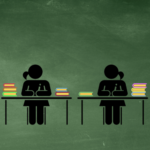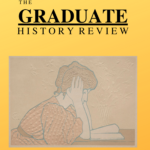 fernetzt. Verein zur Förderung junger Forschung zur Frauen- und Geschlechtergeschichte (Web)
fernetzt. Verein zur Förderung junger Forschung zur Frauen- und Geschlechtergeschichte (Web)
Woher hatten die Gründerinnen des Wiener Frauen-Erwerb-Vereins 1866 das dafür notwendige Know How? Mit welchen Argumenten verteidigten Akteurinnen der katholischen Frauenbewegung im Austrofaschismus das „Recht der Frau auf Erwerbsarbeit“? Wie wurde das Thema Abtreibung in der Weimarer Republik von der organisierteb Ärztinnenschaft diskutiert?
Das sind einige der Fragen, denen die zuletzt veröffentlichte Beiträge in „fernetzt – der Blog“ nachgehen. Der Weblog ist 2015 online gegangen, um Impulse für Diskussionen zu setzen und die Sichtbarkeit junger – bzw. nicht institutionalisierter – Forschung zu erhöhen. Inzwischen wurden in dem gänzlich ehrenamtlich organisierten Weblog bereits mehr als 80 Beiträge publiziert. Herausgeberin ist der Verein fernetzt. Dieser wurde 2011 gegründet als Raum für Diskussionen, den Austausch über den Forschungsalltag und gegenseitige Unterstützung. (Web).
2016 wurde in „fernetzt – der Blog“ auch ein Interview veröffentlicht, in dem die Administratorin Li Gerhalter den Salon 21 näher vorstellt (Web).
Bisherige Posts im Weblog (Web):
- Noch nie dagewesen? Die Gründung des Wiener Frauen-Erwerb-Vereins 1866; von Waltraud Schütz (Link)
- Katholische Frauen im Austrofaschismus. Das Recht auf Erwerbsarbeit für alle Frauen?; von Elisabeth Luif (Link)
- Österreichische „Besatzungskinder“; von Nadjeshda Stoffers (Link)
- § 218: Die politischen Ärztinnen der Weimarer Republik; von Julia Raba (Link)
- Für die Forschung festhalten: Das Frida-Interviewprojekt zum 30. Jubiläum; von Elizabeth Kata (Link)
- Der „gottgewollte“ Platz der Frau an der Uni Wien ab 1933; von Linka Erker (Link)
- Nicht nur dokumentieren, sondern selber Geschichte machen: frida feiert ihr 30. Jubiläum; von Elizabeth Kata (Link)
- Die Fahrradfahrerin als Symbol der modernen Frau; von Veronika Ebner Continue reading

 FemWiss
FemWiss 
 Graduate History Review (Univ. of Victoria), Volume 12 (2023)
Graduate History Review (Univ. of Victoria), Volume 12 (2023)  Forschungsplattform GAIN – Gender: Ambivalent In_Visibilities
Forschungsplattform GAIN – Gender: Ambivalent In_Visibilities  European research network on discourses of marginality and de-marginalization (DeMarg)
European research network on discourses of marginality and de-marginalization (DeMarg)  Forschungsplattform GAIN – Gender: Ambivalent In_Visibilities
Forschungsplattform GAIN – Gender: Ambivalent In_Visibilities